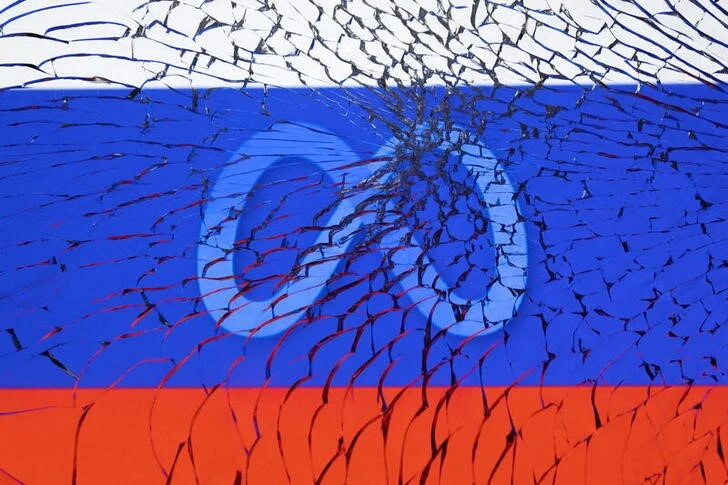Meta bans Russian state media globally for funneling $10M for Russian propaganda
 Meta logo and Russian flag are seen through broken glass. (Reuters Photo)
Meta logo and Russian flag are seen through broken glass. (Reuters Photo)
Meta announced late Monday that it has banned Russian state media outlets from its platforms worldwide, citing “foreign interference activity.” The decision follows accusations by U.S. authorities that Russian state-run media, including RT, funneled $10 million through shell entities to fund covert influence campaigns on social media platforms such as TikTok, Instagram, X, and YouTube, according to an indictment unsealed in New York.
The indictment reveals that U.S. prosecutors accused RT of running secret projects aimed at shaping public opinion, particularly in Western countries. An RT editor-in-chief is quoted in the indictment as claiming the media outlet created an “entire empire of covert projects” to influence “Western audiences.” One of the covert operations allegedly involved funding and directing a content creation company in Tennessee.
In response to the indictment, Meta expanded its enforcement actions against Russian state media outlets. “After careful consideration, we expanded our ongoing enforcement against Russian state media outlets,” Meta said. “Rossiya Segodnya, RT, and other related entities are now banned from our apps globally for foreign interference activity.”
RT had already been forced to cease operations in the United States, Canada, the European Union, and Britain due to sanctions imposed after Russia’s invasion of Ukraine in February 2022.
Meta has been tracking and disrupting Russian influence campaigns since 2017, identifying Russia as the largest source of covert online influence operations on its platform. These efforts reportedly increased following Russia’s invasion of Ukraine.
In addition to the Meta ban, the U.S. Department of State has been engaged in diplomatic efforts to inform governments about Russia’s use of RT to conduct covert activities. The State Department has encouraged these governments to take actions limiting Russia’s ability to interfere in elections and obtain weapons for its war in Ukraine.
Earlier September, U.S. authorities also unsealed an indictment against two employees of RT and seized 32 internet domains, accusing them of interference in the U.S. November presidential elections. Russia has denied any attempts to interfere in the elections, dismissing the charges as baseless.
The move by Meta comes shortly after U.S. Secretary of State Antony Blinken announced new sanctions against RT, asserting that the media outlet had engaged in covert information influence operations and military procurement.



